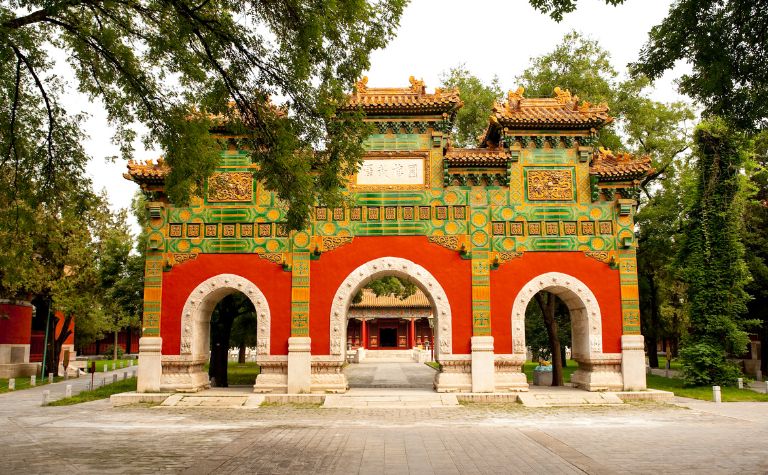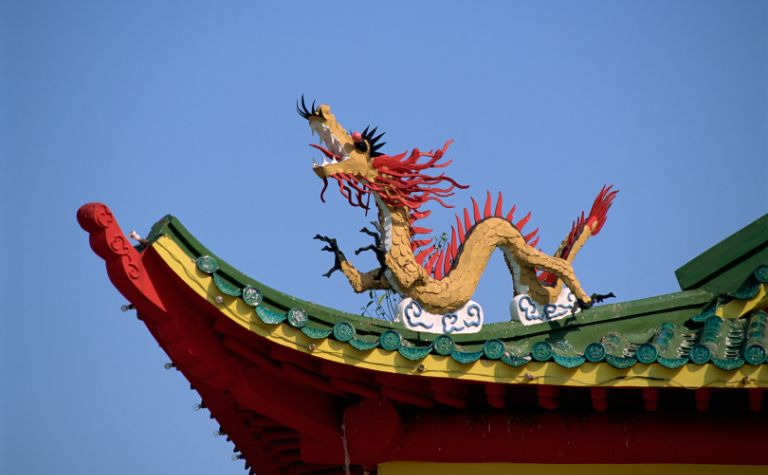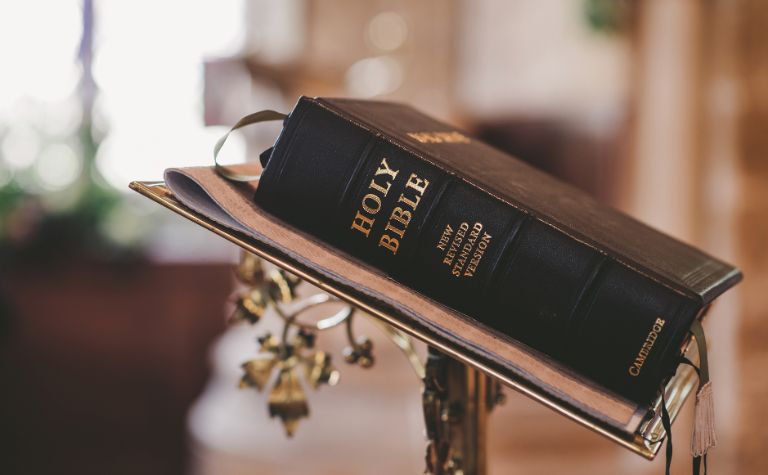Understanding the differences between Christianity and the Confucian religion is vital for education, offering insights into historical events shaped by these philosophies.
It also deepens our grasp of diverse cultures, revealing how religious and philosophical teachings influence societal norms, values, and traditions across different civilizations.
Christianity centers on faith in God and salvation through Jesus Christ, emphasizing sin and redemption. It believes in an eternal afterlife.
Confucianism focuses on moral virtues and proper social relationships, viewing humans as inherently good. It emphasizes living harmoniously, with less focus on the afterlife or a deity.

Comparing Christianity and Confucianism: An Overview
“Christianity” derives from the Greek “Christos,” meaning “anointed one,” referencing Jesus Christ, with “-ianity” indicating a belief system.
“Confucianism” originates from “Confucius,” the Latinized name of Kong Fuzi, a Chinese philosopher, with “-ism” denoting a philosophical or religious tradition based on his teachings.
| Aspect | Christianity | Confucianism |
|---|---|---|
| Name | Christianity | Confucianism |
| Size | Approximately 2.3 billion adherents | Estimated 5-6 million adherents |
| Date Started | Around 1st century AD | Around 5th century BC |
| Founder | Jesus Christ | Confucius (Kong Fuzi) |
| Key Beliefs | Belief in one God (Trinity: Father, Son, Holy Spirit); salvation through faith in Jesus Christ; resurrection of Jesus Christ | Emphasis on moral integrity and virtue; importance of family and ancestor reverence; social harmony through proper behavior |
| Key Practices | Prayer, worship services, reading the Bible, baptism, communion (Eucharist) | Rituals honoring ancestors, study and reflection on classic texts, observance of rites and ceremonies |
| Divisions | Roman Catholicism, Eastern Orthodoxy, Protestantism | Classical Confucianism, Neo-Confucianism, Contemporary Confucianism |
| Central Location | Vatican City (Catholicism); various locations for other denominations | China (origin and central location) |
| Sacred Texts | The Bible (Old and New Testaments) | The Four Books: Analects, Mencius, Great Learning, Doctrine of the Mean; and the Five Classics |
Also, see What’s the Difference Between Catholicism, Orthodox, and Protestant? to learn more.

Contrasting Christian and Confucian Beliefs
| Aspect | Christian Beliefs | Confucian Beliefs |
|---|---|---|
| God or gods | One God, existing in three persons (Trinity): Father, Son (Jesus Christ), and Holy Spirit | Not primarily a theistic religion; emphasis on Heaven (Tian) as a moral order or principle rather than a deity |
| The universe | Created by God; has a purpose and will be redeemed in the end times | A harmonious order established by Heaven; humans should align with this order |
| Ultimate reality | God is the ultimate reality; eternal, omnipotent, omniscient, and omnipresent | The Way (Dao) of Heaven and Earth; a natural and moral order governing all existence |
| Human beings | Created in the image of God; inherently sinful but redeemable | Essentially good but can be corrupted; have the potential to cultivate virtue |
| The problem with the world | Sin, leading to suffering, injustice, and separation from God | Disruption of social and cosmic harmony due to neglect of proper relationships and virtues |
| The solution to the problem | Salvation through faith in Jesus Christ; repentance and forgiveness of sins | Cultivation of virtue, proper conduct, and maintaining social and familial roles |
| The afterlife | Heaven (eternal life with God) for the righteous; Hell (eternal separation from God) for the unrighteous | Not a central concern in Confucianism; emphasis on honoring ancestors and living a virtuous life |
Christian and Confucian Practices: Differences
| Practice | Christian Practices | Confucian Practices |
|---|---|---|
| Prayer | Central to worship; personal communication with God | Not a primary focus; some rituals include prayers to ancestors or Heaven |
| Worship Services | Regular gatherings for communal worship, prayer, and Bible readings | Study sessions, ceremonies, and rituals focused on moral teachings and ancestral veneration |
| Reading Sacred Texts | Reading and studying the Bible (Old and New Testaments) | Reading and reflecting on the Four Books and Five Classics |
| Rituals | Baptism, Communion (Eucharist), Confirmation, Marriage, Anointing of the Sick | Rituals honoring ancestors, rites of passage, and ceremonies emphasizing moral virtues |
| Moral and Ethical Conduct | Following the teachings of Jesus Christ; emphasis on love, forgiveness, and charity | Emphasis on the Five Relationships, the Five Virtues, and proper conduct in society |
| Festivals and Celebrations | Christmas, Easter, Pentecost, and other Christian holidays | Confucius’ birthday, Qingming Festival (for ancestor veneration), and other cultural festivals |
| Symbols | Cross, fish, dove, bread and wine | Yin-yang, the Five Elements, images of Confucius |

Comparing the Sacred Texts of Christianity and Confucianism
| Christianity | Confucianism | |
|---|---|---|
| Texts | The Bible | The Four Books and Five Classics |
| Components | Old Testament and New Testament | Four Books: Analects, Mencius, Great Learning, Doctrine of the Mean Five Classics: Book of Songs, Book of Documents, Book of Changes (I Ching), Book of Rites, Spring and Autumn Annals |
| Language of Composition | Hebrew, Aramaic, Greek | Classical Chinese |
| Date of Composition | Between 1400 BC and 100 AD | Between 11th century BC and 2nd century BC |
| Authorship | Various authors, including prophets, apostles, and other religious leaders | Confucius, Mencius, and other ancient Chinese scholars |
| Themes | God’s relationship with humanity, salvation through Jesus Christ, moral and ethical conduct | Moral integrity, proper social relationships, governance, and wisdom |
| Role in Worship | Central to worship services, sermons, and Bible studies | Used for moral education, reflection, and guidance in governance |

10 Key Events in Christian and Confucian History
| Christian Events | Confucian Events |
|---|---|
| 1. Birth of Jesus Christ (circa 4-6 BC) | 1. Birth of Confucius (551 BC) |
| 2. Crucifixion and resurrection of Jesus Christ (circa 30-33 AD) | 2. Compilation of the Analects (after Confucius’ death) |
| 3. Conversion of Paul the Apostle (circa 33-36 AD) | 3. Establishment of Confucianism as state ideology during the Han Dynasty (206 BC-220 AD) |
| 4. Council of Nicaea (325 AD) | 4. Writing of the “Mencius” and other Confucian texts |
| 5. Conversion of Emperor Constantine (312 AD) | 5. Rise of Neo-Confucianism during the Song Dynasty (960-1279 AD) |
| 6. Great Schism (1054 AD) | 6. Compilation of the Four Books during the Song Dynasty |
| 7. Crusades (1096-1291 AD) | 7. Confucianism’s decline and suppression during the Qin Dynasty (221-206 BC) |
| 8. Protestant Reformation (1517 AD) | 8. Revival of Confucianism during the Ming (1368-1644) and Qing (1644-1912) Dynasties |
| 9. Council of Trent (1545-1563 AD) | 9. The May Fourth Movement (1919) challenging Confucian values |
| 10. Second Vatican Council (1962-1965 AD) | 10. Modern adaptations and revivals of Confucian thought in the 20th and 21st centuries |
Also see: Religion Statistics by Country
Related Questions
Comparing Christianity and Buddhism reveals significant contrasts between two of the world's major religions. Christianity centers around the belief in a single God who exists in three persons and...
Exploring the world's religions using the comparison charts below offers fascinating insights into cultures and beliefs. It opens doors to understanding human history, values, and...
